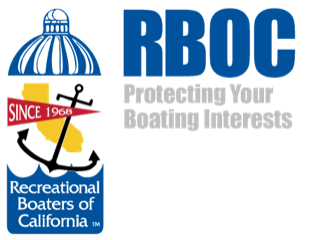SB 941 [Monning and DeSaulnier] has passed the Assembly Committee on Transportation and now proceeds to the Assembly Appropriations Committee for consideration.
SB 941 would require the Division of Boating and Waterways [DBW] to issue a vessel operator card to individuals who have passed an approved examination.
The requirement to obtain a vessel operator card would apply initially to operators 20 years of age or younger with a phased-in implementation date depending on the age of the individual. The seven-year phase-in would begin in 2018 and would eventually apply to everyone as of 2025. The requirement would apply to operators of vessels propelled by engines.
Importantly, online education such as the BoatUS Foundation course will be an option. The BoatUS Foundation course is available at: http://www.boatus.org/courses/
RBOC testified in support of the bill in the Assembly Transportation Committee, together with the boating industry organizations.
RBOC will continue to be engaged as SB 941 moves forward as a work-in-progress. Key provisions RBOC is continuing to address include the fees associated with the new program, the implementation of the bill by the Division of Boating and Waterways, and other issues.
